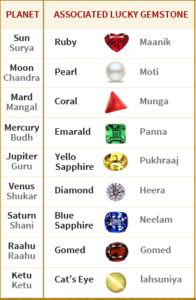Wearing a Coral (Moonga) in Vedic astrology is associated with the planet Mars (Mangal) and is believed to enhance courage, physical strength, and vitality.

In Vedic astrology, gemstones are believed to have the power to influence planetary energies and bring about positive changes in an individual’s life. These gemstones are often recommended based on the analysis of an individual’s birth chart or horoscope.
Here are some guidelines on how to wear a Coral in Vedic astrology:
- Consult a Vedic Astrologer:
- Before wearing any gemstone, it is crucial to consult with a qualified Vedic astrologer. The astrologer will analyze your birth chart (horoscope) to determine whether wearing a Coral is suitable for you based on the position of Mars and other factors.
- Check for Afflictions:
- Mars should be a beneficial planet in your birth chart, and there should be no major afflictions or negative aspects associated with it. If Mars is debilitated or afflicted, wearing a Coral may not be recommended.
- Selecting a Quality Coral:
- Choose a high-quality, natural Coral. Look for a deep, vibrant red color with a smooth surface. A genuine Coral is believed to have positive effects, while imitation or flawed stones may not provide the desired benefits.
- Purification and Activation:
- Before wearing the Coral, it is advised to purify the gemstone. This can be done by dipping it in a mixture of raw milk and pure water and then energizing it with Vedic mantras or Mars-related chants.
- Metal for Setting:
- It is common to set the Coral in a gold or copper ring, as these metals are associated with Mars. The Moonga or Red Coral gemstone can be made into a ring or a pendant. This ring should be worn on the ring finger of the right hand on a Tuesday Morning during Shukla Paksha before sunrise.
- Wearing on Specific Days and Times:
- The Coral is often recommended to be worn on a Tuesday, the day associated with Mars. Additionally, wearing the gemstone during Mars’ Hora (an hour dedicated to Mars) is considered auspicious.
- Energizing the Gemstone:
- Before wearing the Coral for the first time, it is recommended to energize it with specific mantras. This process is known as “Pran Pratishtha” and involves invoking the energy of Mars into the gemstone.
- Regular Cleaning:
- To maintain the effectiveness of the Coral, it should be regularly cleaned. Use a soft brush and mild detergent to clean the gemstone, and avoid exposing it to harsh chemicals.
- Astrological Check-ups:
- Periodically consult with your astrologer to ensure that wearing the Coral continues to be beneficial based on changes in your astrological influences.
It’s important to note that while gemstones are believed to have positive effects in Vedic astrology, individual experiences may vary. It is always recommended to follow the guidance of a qualified astrologer and to approach the use of gemstones with respect for cultural and personal beliefs.
